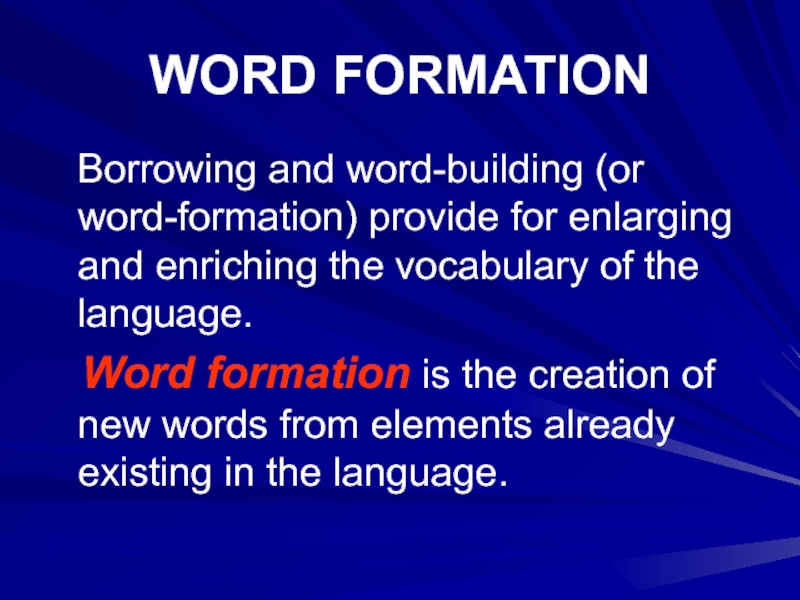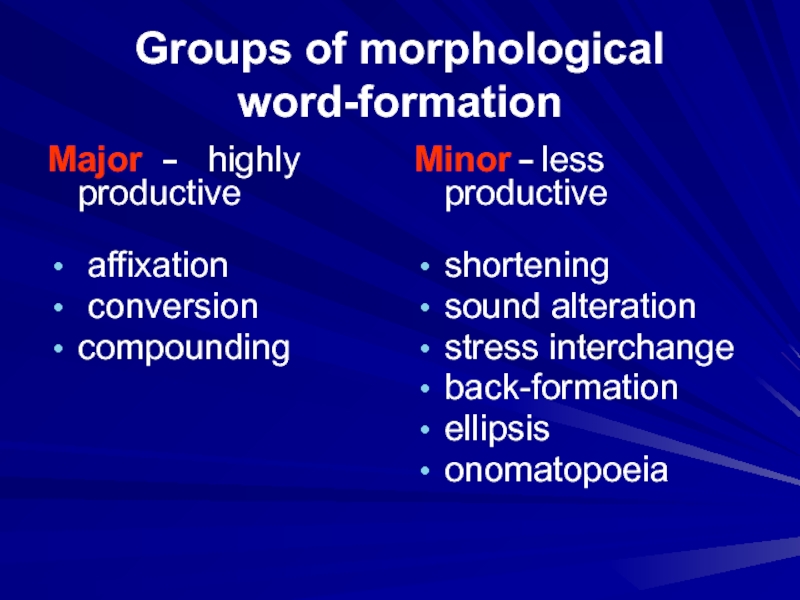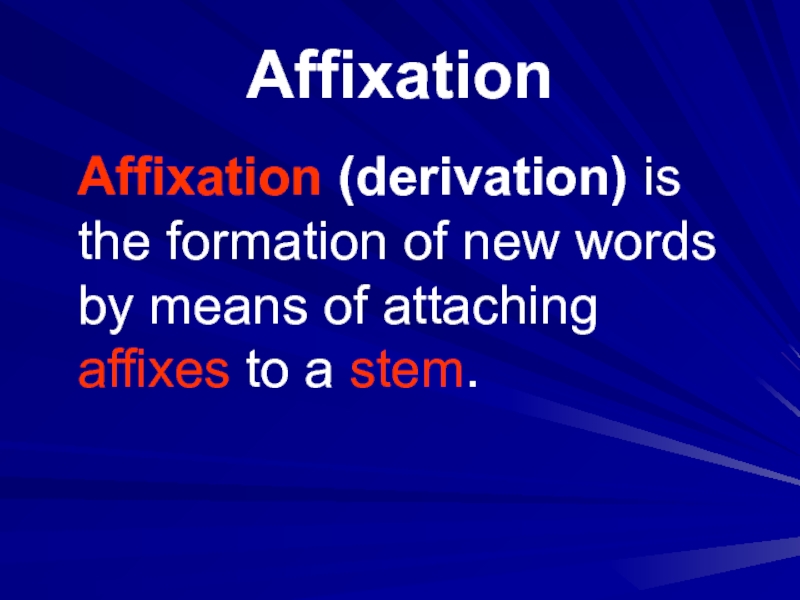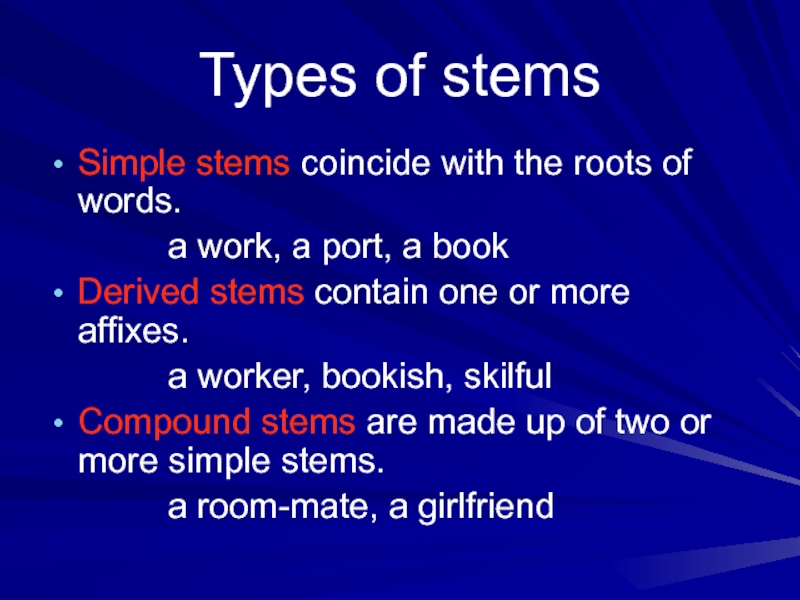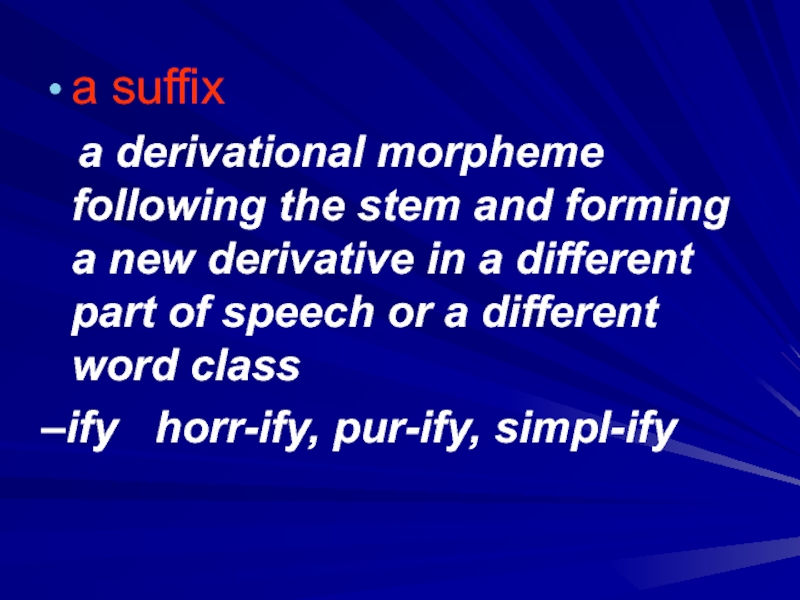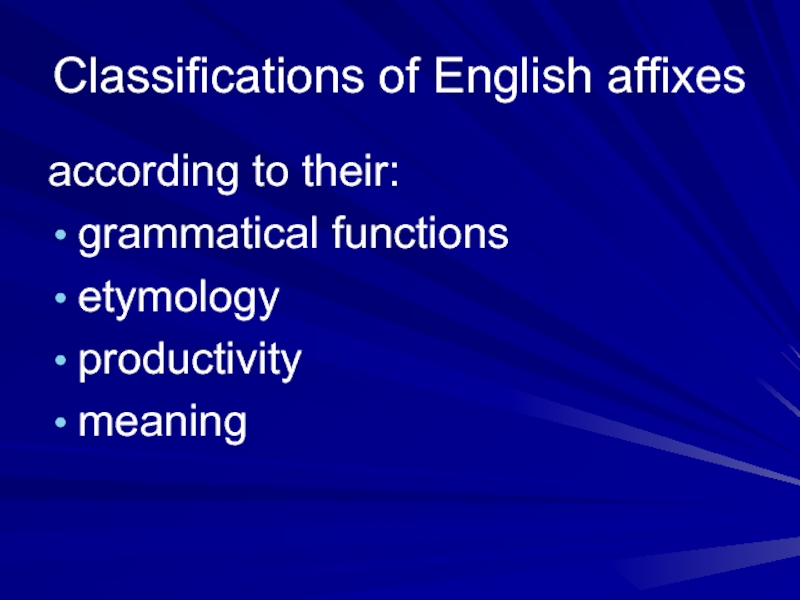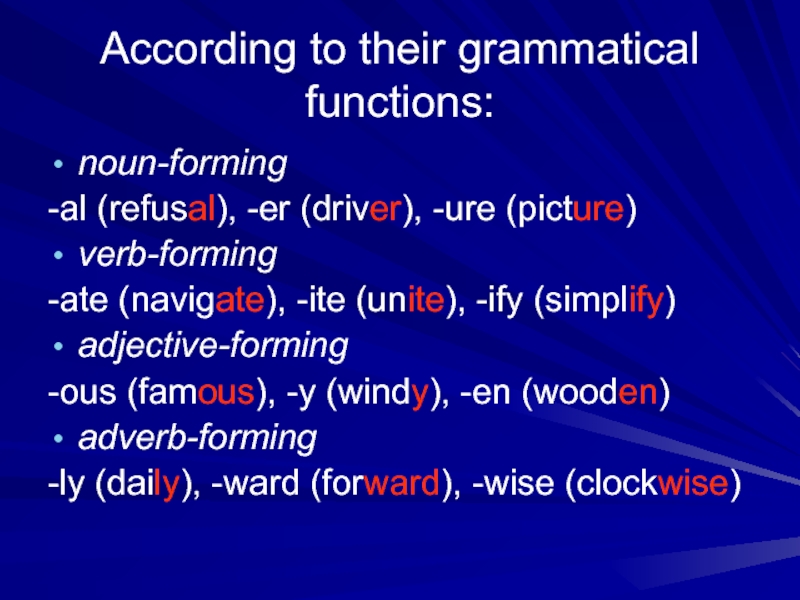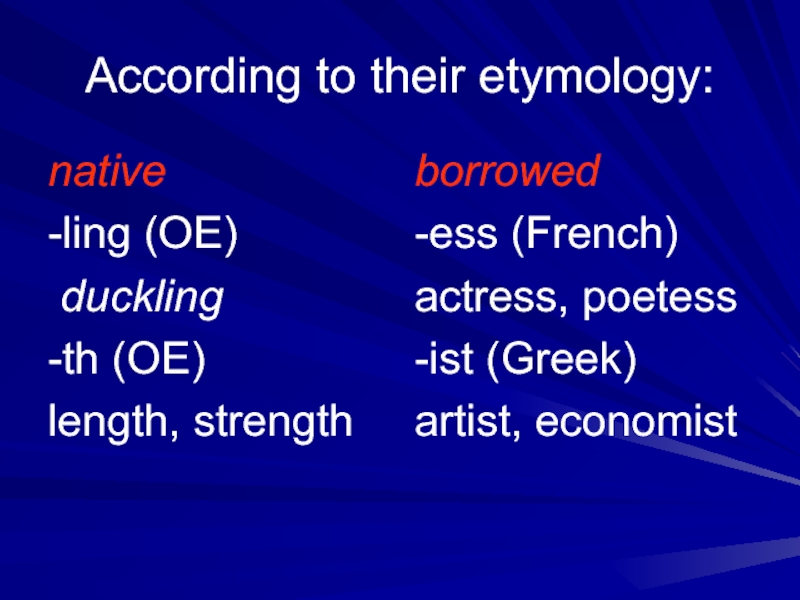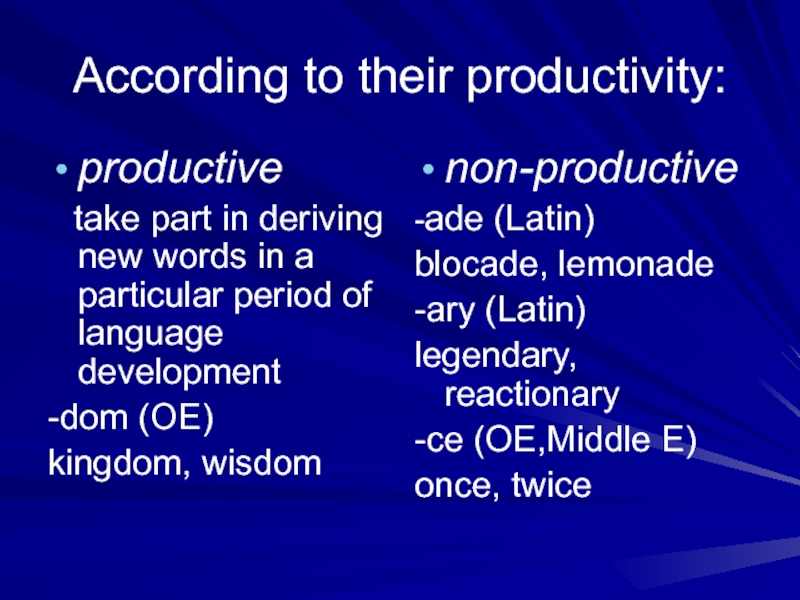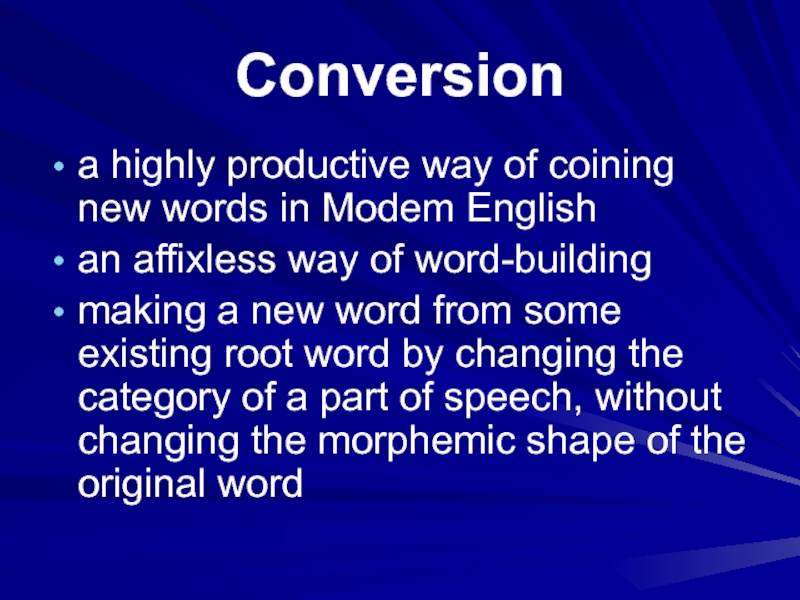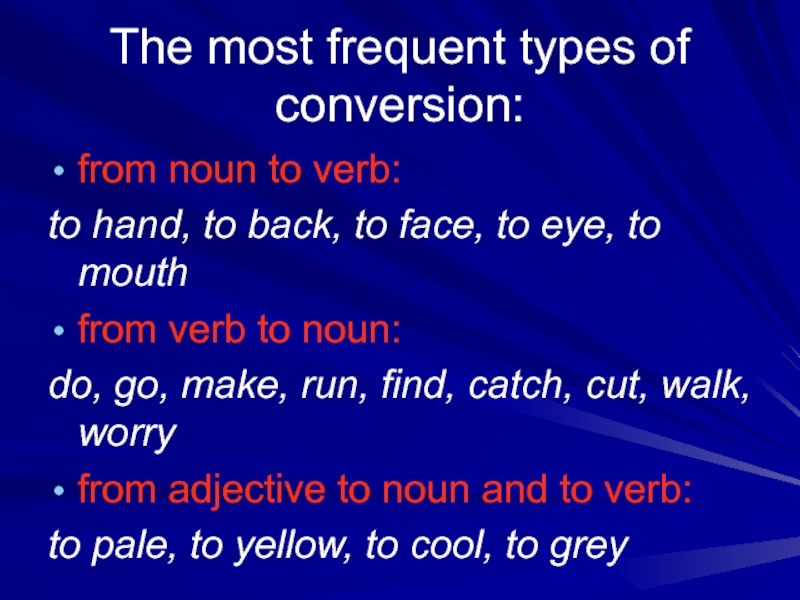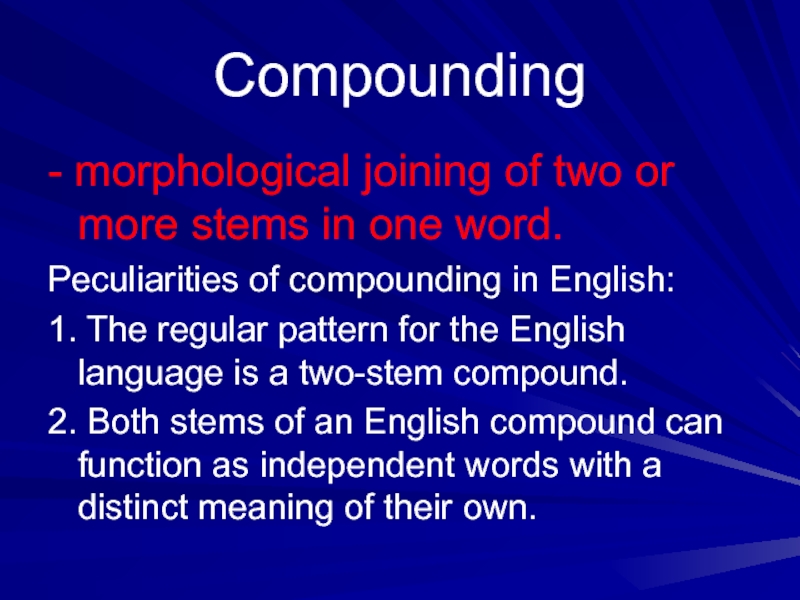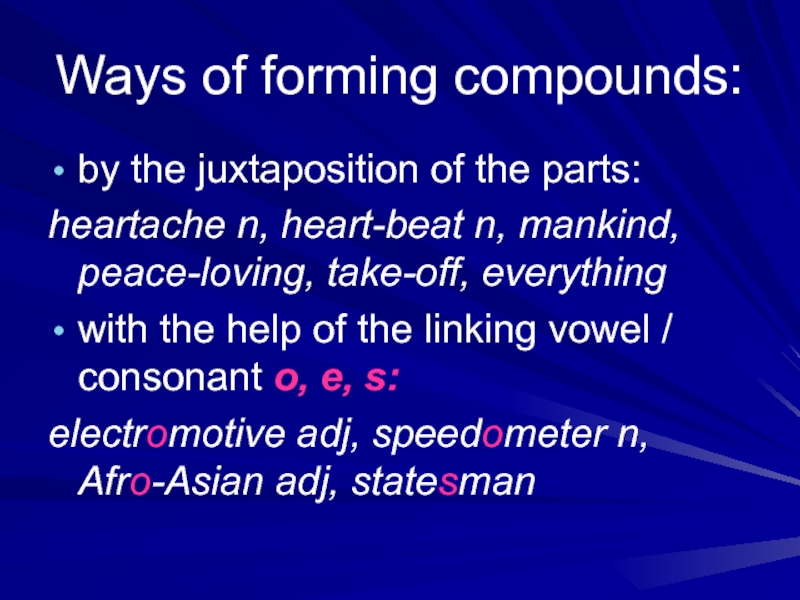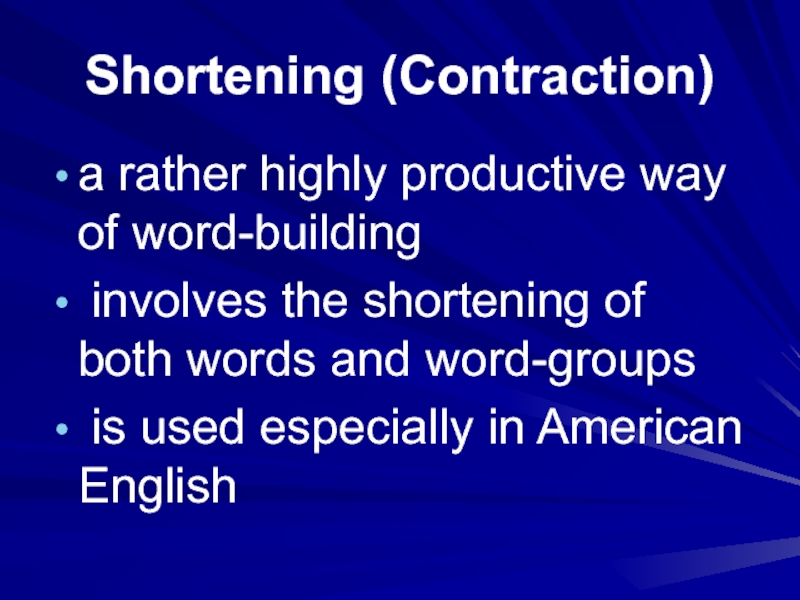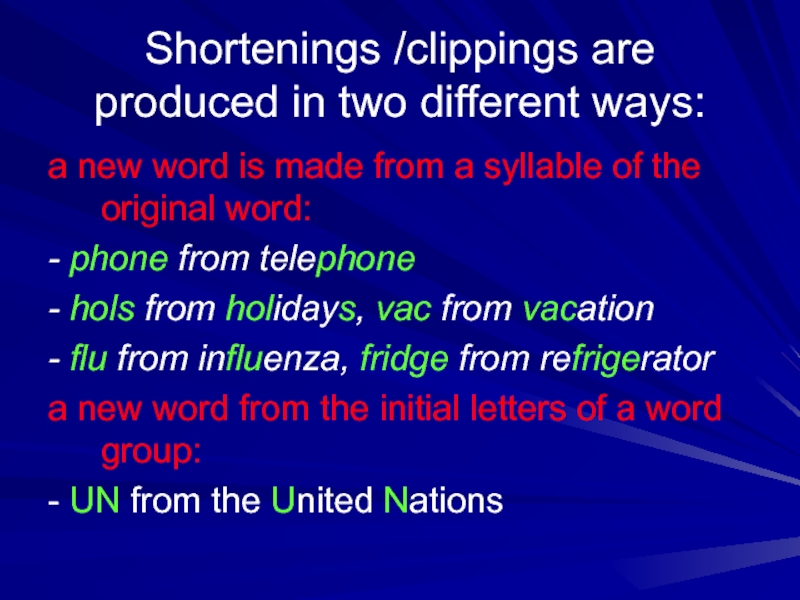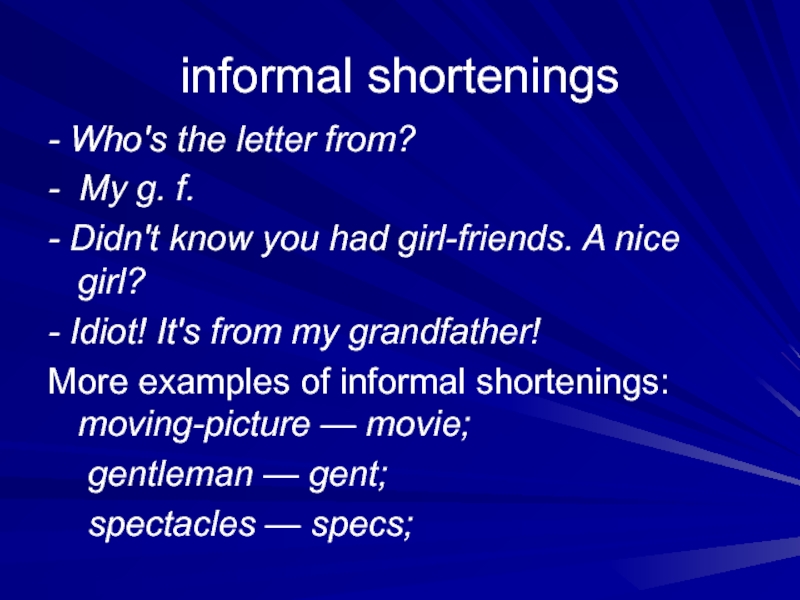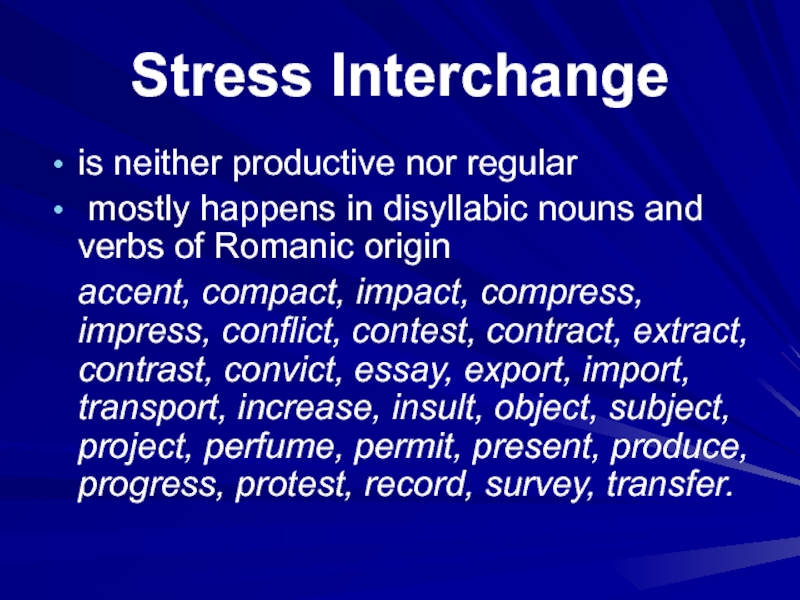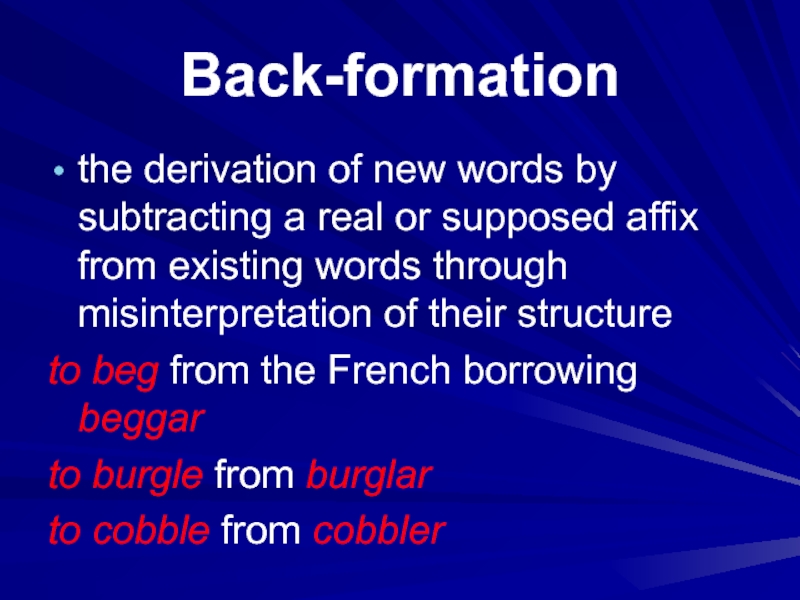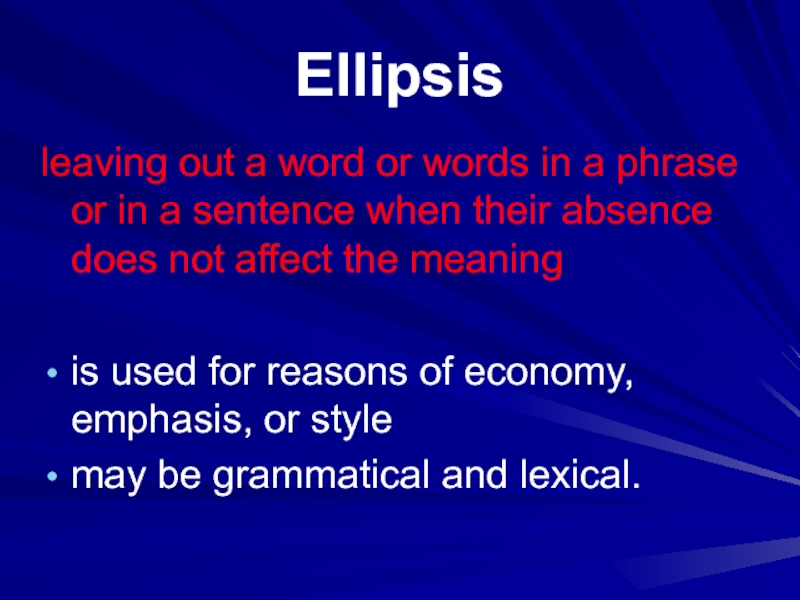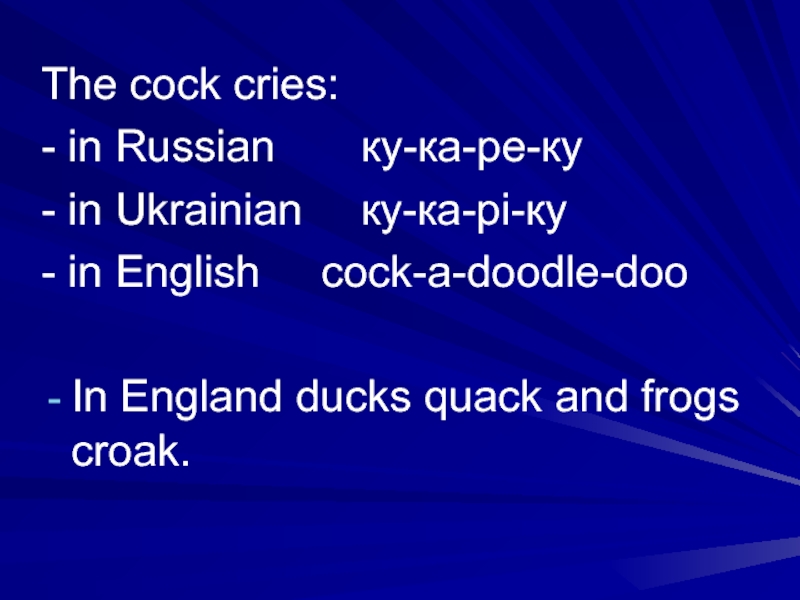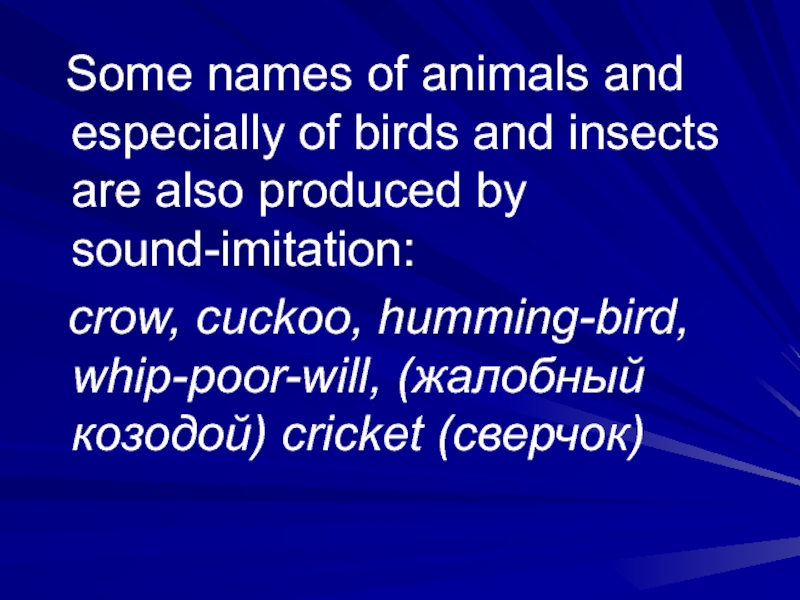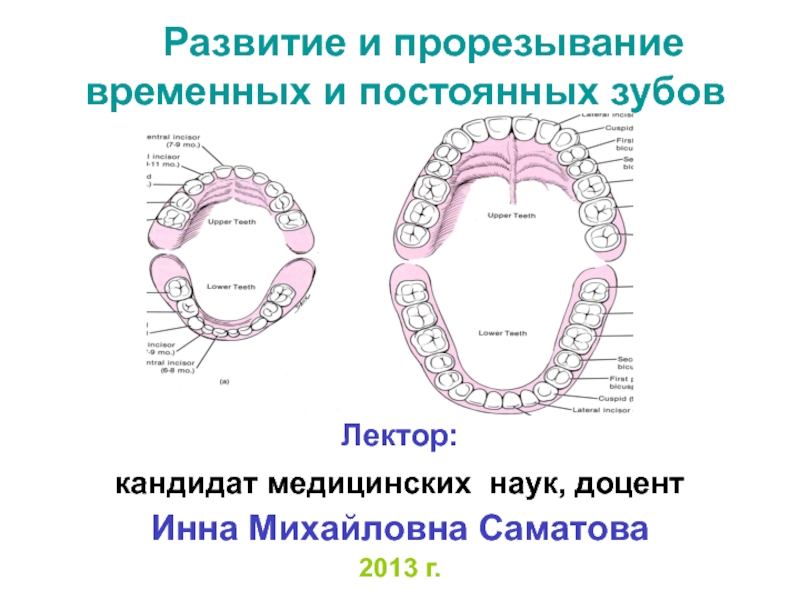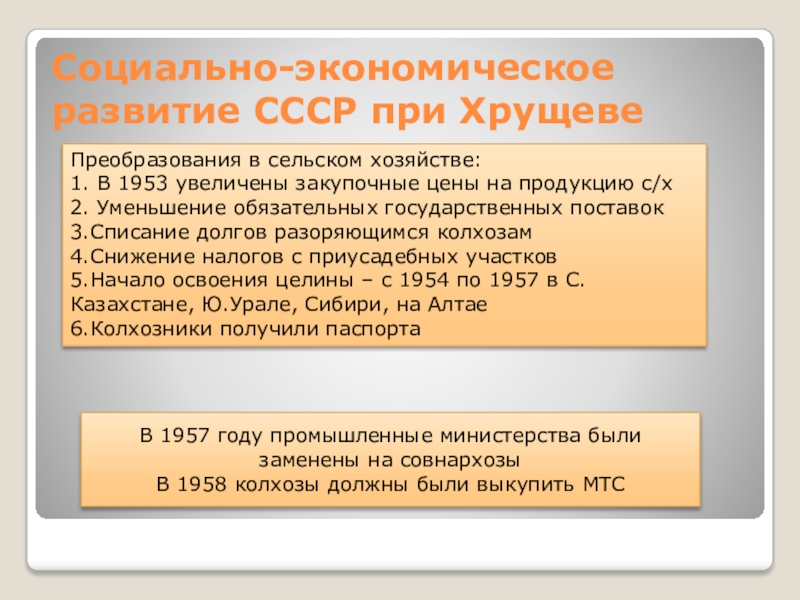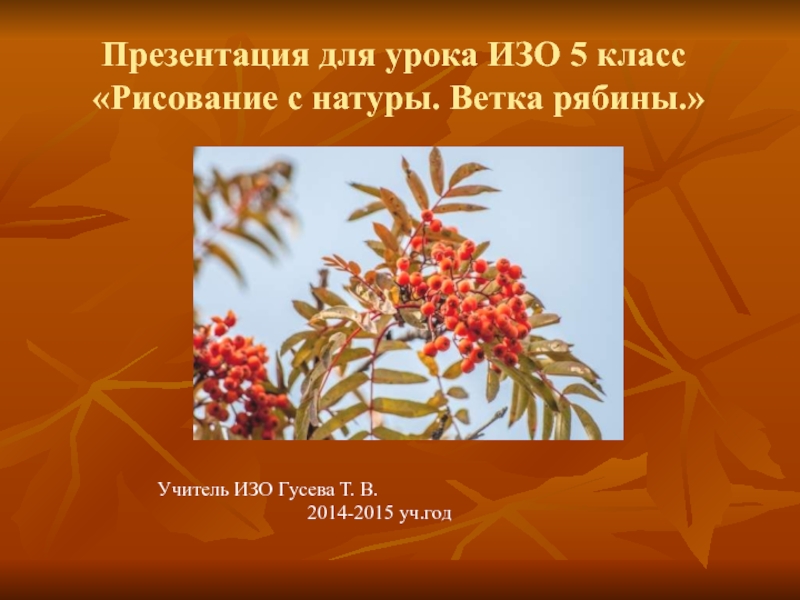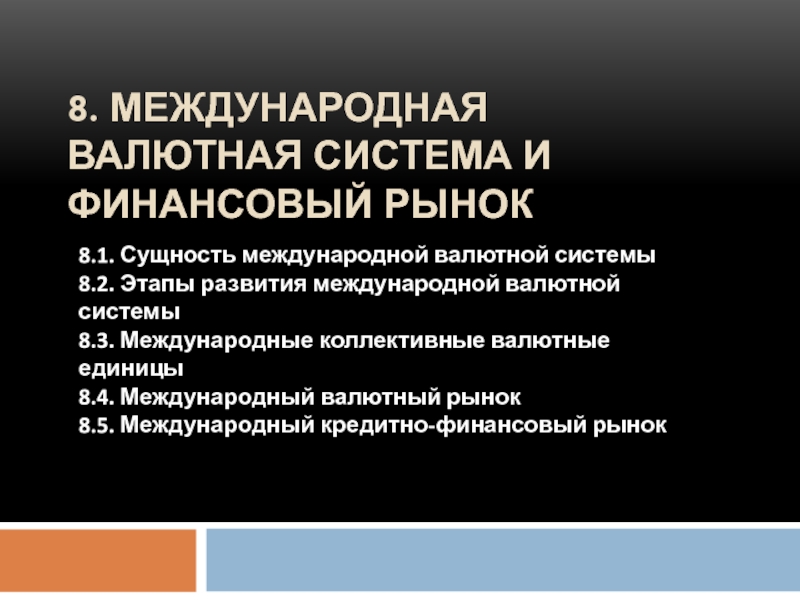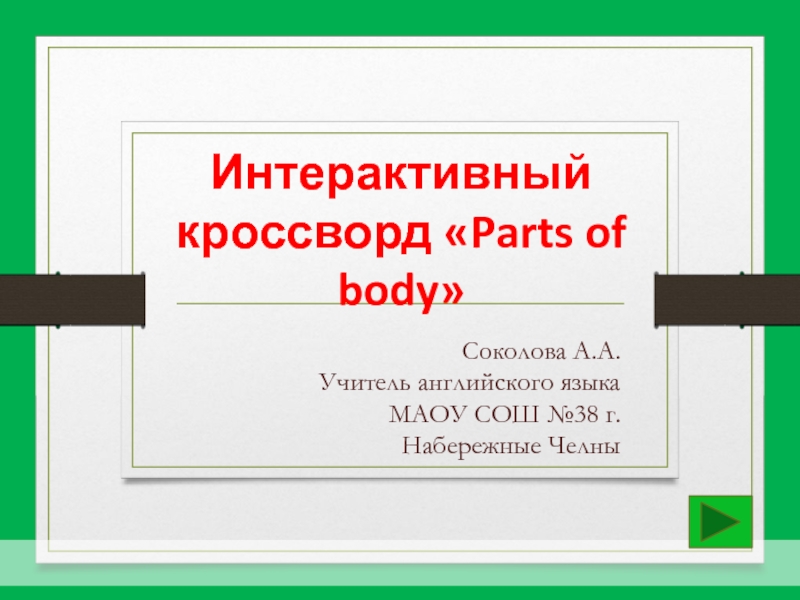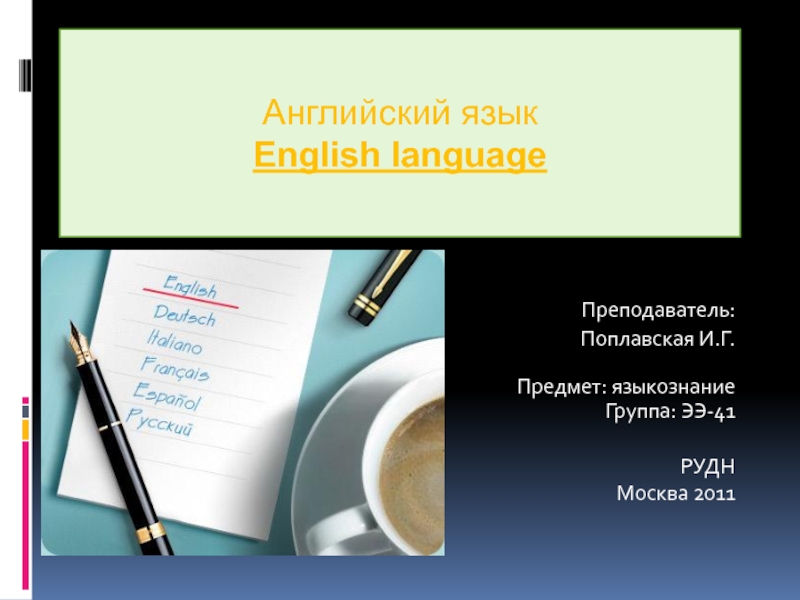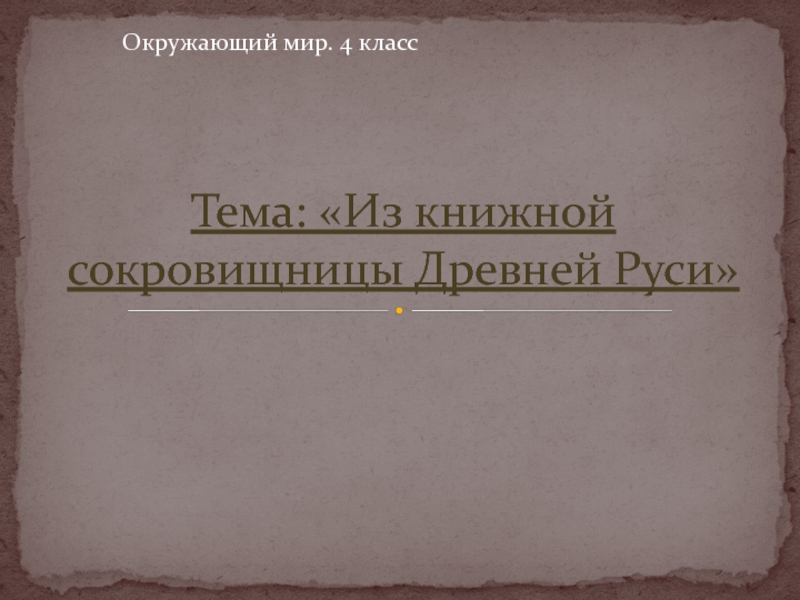Разделы презентаций
- Разное
- Английский язык
- Астрономия
- Алгебра
- Биология
- География
- Геометрия
- Детские презентации
- Информатика
- История
- Литература
- Математика
- Медицина
- Менеджмент
- Музыка
- МХК
- Немецкий язык
- ОБЖ
- Обществознание
- Окружающий мир
- Педагогика
- Русский язык
- Технология
- Физика
- Философия
- Химия
- Шаблоны, картинки для презентаций
- Экология
- Экономика
- Юриспруденция
WORD FORMATION
Содержание
- 1. WORD FORMATION
- 2. Groups of morphological word-formationMajor − highly productive
- 3. Affixation Affixation (derivation) is the formation
- 4. A STEM AND A ROOT A Stem −
- 5. A STEM AND A ROOT A
- 6. Types of stems Simple stems coincide with
- 7. Слайд 7
- 8. a suffix a derivational morpheme following
- 9. a prefix a derivational morpheme
- 10. Classifications of English affixesaccording to their: grammatical functions etymology productivity meaning
- 11. According to their grammatical functions:noun-forming -al (refusal),
- 12. According to their etymology: native-ling (OE) duckling-th (OE)length, strengthborrowed-ess (French)actress, poetess-ist (Greek)artist, economist
- 13. According to their productivity: productive take
- 14. Conversiona highly productive way of coining new
- 15. The telephone rang while I was eating
- 16. The most frequent types of conversion: from
- 17. Compounding - morphological joining of two or
- 18. by the juxtaposition of the parts: heartache
- 19. Shortening (Contraction) a rather highly productive way
- 20. Shortenings /clippings are produced in two different
- 21. informal shortenings - Who's the letter from?-
- 22. Sound interchange or gradation a productive way
- 23. Two groups of sound interchangeVowel interchangefull (adj.)
- 24. Stress Interchange is neither productive nor regular
- 25. Back-formation the derivation of new words by
- 26. Ellipsisleaving out a word or words in
- 27. Grammatical ellipsis - when grammatical words are
- 28. ONOMATOPOEIA the naming of an action
- 29. The cock cries: - in Russian
- 30. Some names of animals and especially
- 31. Скачать презентанцию
Слайды и текст этой презентации
Слайд 1WORD FORMATION
Borrowing and word-building (or word-formation) provide
for enlarging and enriching the vocabulary of the language.
Word formation is the creation of new words from elements already existing in the language.Слайд 2Groups of morphological word-formation
Major − highly productive
affixation
conversion
compounding
Minor − less productive
shortening
sound alteration
stress interchange
back-formation
ellipsis
onomatopoeia
Слайд 3Affixation
Affixation (derivation) is the formation of new words
by means of attaching affixes to a stem.
Слайд 4A STEM AND A ROOT
A Stem − the part of
a word which remains unchanged throughout its grammatical paradigm.
singer:
singer, singers, singer's, singers’
possesses both lexical and grammatical (part-of-speech) meaning.
Слайд 5A STEM AND A ROOT
A Root − the
basic part of a word which remains unchanged in the
process of morphological derivation.shows the lexical meaning of a word
heart, hearten, dishearten, heartily, heartless, hearty, heartiness, sweetheart, heart-broken, kind-hearted, whole-heartedly
Слайд 6Types of stems
Simple stems coincide with the roots of
words.
a work, a port, a book
Derived stems contain
one or more affixes. a worker, bookish, skilful
Compound stems are made up of two or more simple stems.
a room-mate, a girlfriend
Слайд 8a suffix
a derivational morpheme following the stem
and forming a new derivative in a different part of
speech or a different word class–ify horr-ify, pur-ify, simpl-ify
Слайд 9 a prefix
a derivational morpheme standing before the
root and modifying meaning.
hearten - dishearten, sleep
- asleepan infix
an affix placed within the word, like -n~ in stand or between stems. It is not productive.
Слайд 10Classifications of English affixes
according to their:
grammatical functions
etymology
productivity
meaning
Слайд 11According to their grammatical functions:
noun-forming
-al (refusal), -er (driver), -ure
(picture)
verb-forming
-ate (navigate), -ite (unite), -ify (simplify)
adjective-forming
-ous (famous), -y
(windy), -en (wooden)adverb-forming
-ly (daily), -ward (forward), -wise (clockwise)
Слайд 12According to their etymology:
native
-ling (OE)
duckling
-th (OE)
length, strength
borrowed
-ess
(French)
actress, poetess
-ist (Greek)
artist, economist
Слайд 13According to their productivity:
productive
take part in
deriving new words in a particular period of language development
-dom (OE)
kingdom, wisdom
non-productive
-ade (Latin)
blocade, lemonade
-ary (Latin)
legendary, reactionary
-ce (OE,Middle E)
once, twice
Слайд 14Conversion
a highly productive way of coining new words in Modem
English
an affixless way of word-building
making a new word from
some existing root word by changing the category of a part of speech, without changing the morphemic shape of the original word Слайд 15The telephone rang while I was eating my toast.
He
would send a cable or telephone as soon as he
returned.I have just received a bill from the telephone company.
Слайд 16The most frequent types of conversion:
from noun to verb:
to hand, to back, to face, to eye, to mouth
from verb to noun:
do, go, make, run, find, catch, cut, walk, worry
from adjective to noun and to verb:
to pale, to yellow, to cool, to grey
Слайд 17Compounding
- morphological joining of two or more stems in
one word.
Peculiarities of compounding in English:
1. The regular pattern for
the English language is a two-stem compound.2. Both stems of an English compound can function as independent words with a distinct meaning of their own.
Слайд 18by the juxtaposition of the parts:
heartache n, heart-beat n,
mankind, peace-loving, take-off, everything
with the help of the linking
vowel / consonant o, e, s: electromotive adj, speedometer n, Afro-Asian adj, statesman
Ways of forming compounds:
Слайд 19Shortening (Contraction)
a rather highly productive way of word-building
involves
the shortening of both words and word-groups
is used
especially in American English Слайд 20Shortenings /clippings are produced in two different ways:
a new
word is made from a syllable of the original word:
-
phone from telephone - hols from holidays, vac from vacation
- flu from influenza, fridge from refrigerator
a new word from the initial letters of a word group:
- UN from the United Nations
Слайд 21informal shortenings
- Who's the letter from?
- My g. f.
-
Didn't know you had girl-friends. A nice girl?
- Idiot! It's
from my grandfather!More examples of informal shortenings: moving-picture — movie;
gentleman — gent;
spectacles — specs;
Слайд 22Sound interchange or gradation
a productive way of word building
in OE
important for a diachronic study of the English
language lost its productivity in ME and no new word can be coined by means of sound gradation
an alternation in the phonemic composition of the root
Слайд 23Two groups of sound interchange
Vowel interchange
full (adj.) - fill (v.)
food
(n.) - feed (v.)
blood (n.) - bleed (v.)
strong (adj.) –
strength (n.)long (adj) – length (n.).
Consonant interchange
use - to use
belief – to believe
house - to house
advice – to advise
life (n.) - live (v.)
bath (n.) - bathe (v.)
Слайд 24Stress Interchange
is neither productive nor regular
mostly happens in
disyllabic nouns and verbs of Romanic origin
accent,
compact, impact, compress, impress, conflict, contest, contract, extract, contrast, convict, essay, export, import, transport, increase, insult, object, subject, project, perfume, permit, present, produce, progress, protest, record, survey, transfer.Слайд 25Back-formation
the derivation of new words by subtracting a real
or supposed affix from existing words through misinterpretation of their
structureto beg from the French borrowing beggar
to burgle from burglar
to cobble from cobbler
Слайд 26Ellipsis
leaving out a word or words in a phrase or
in a sentence when their absence does not affect the
meaningis used for reasons of economy, emphasis, or style
may be grammatical and lexical.
Слайд 27Grammatical ellipsis - when grammatical words are omitted.
When (I
was) a child, I often played in this garden.
Lexical ellipsis
may be considered one of the ways of word-formation. weekly < from “weekly paper”
finals < from “final examinations”
мило < from “мильна опера”
Слайд 28ONOMATOPOEIA
the naming of an action or thing by
a more or less exact reproduction of a natural sound
associated with itWords coined by this type of word-building are made by imitating different kinds of sounds that may be produced by animals, birds, insects, human beings and inanimate objects.
